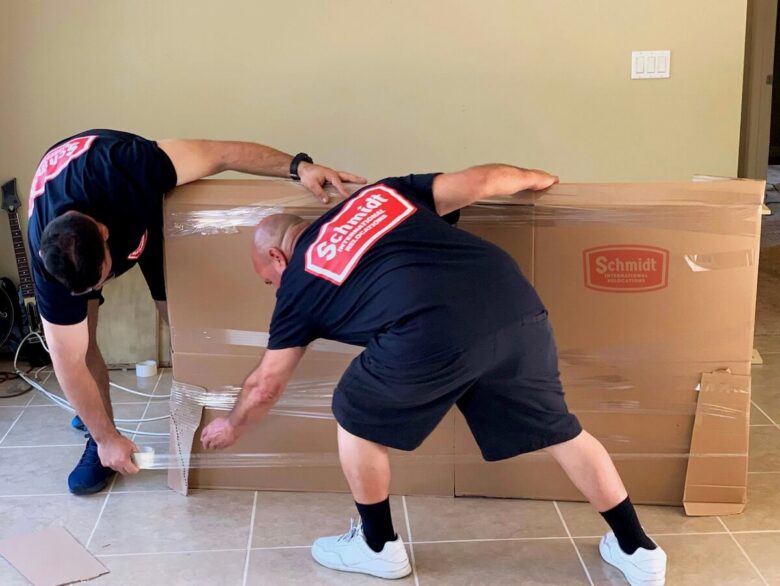

Adjustment insomnia often emerges in the wake of moving internationally, presenting unique challenges to sleep patterns. This specific form of sleep disturbance is triggered by the stress and unfamiliarity associated with relocating across borders. Our guide aims to explore insomnia symptoms, causes, and treatment, ensuring a smoother transition and healthier sleep habits.
What Is Adjustment Insomnia?
Adjustment insomnia, also known as acute insomnia, is a temporary sleep disorder triggered by specific life changes or stressors. Unlike the chronic version of this disorder, which persists for months or years, this is short-term, typically resolving once the stressor is removed or the individual adapts.
It differs from other types of insomnia in its direct correlation with identifiable events, such as moving across the world, job changes, or personal loss. On the other hand, chronic insomnia often has complex, multifactorial causes, including long-term health conditions or deeply rooted psychological issues, making it more persistent and less directly tied to specific life events.
The Psychological and Physical Aspects of Adjustment Insomnia
This disorder encompasses both psychological and physical dimensions. Psychologically, it’s often fueled by anxiety about relocation, stress, or excitement related to life changes that come with living overseas. These emotional states can activate certain brain systems, making it difficult to fall or stay asleep.
Physically, the body’s natural sleep-wake cycle, or circadian rhythm, may be thrown off balance, especially in cases involving travel across time zones when relocating to another country. The disruption in sleep can further exacerbate relocation stress, creating a cyclical pattern where psychological and physical aspects feed into each other, prolonging the condition.

Acute Insomnia Causes in International Moves
Adjustment insomnia after relocating abroad is often fueled by multiple factors. The stress of moving, encompassing both the logistical challenges of an efficient move and emotional upheaval, significantly impacts sleep patterns. Preparations, goodbyes, and the anticipation of new beginnings in a new city trigger stress and anxiety, disrupting the body’s natural sleep rhythm.
Furthermore, the sense of loss of a familiar environment and support system contributes to heightened stress levels. This emotional and mental strain makes it challenging for individuals to relax and fall asleep, leading to transient insomnia, which typically persists until the individual starts to adapt to the new circumstances and environment.
Effects of Changing Time Zones and New Environments
The impact of changing time zones on sleep is profound, often leading to adjustment insomnia when relocating overseas. Jet lag, caused by crossing multiple time zones, disrupts the body’s internal clock, leading to misalignment with the local time. This results in difficulty falling asleep and waking up and general sleep disturbances.
Additionally, adapting to a new home can be stressful. Unfamiliar sights, sounds, and even bedding can make it harder to achieve the comfort needed for sound sleep. Culture shock and different societal norms or lifestyles can also add to the stress, further complicating the process of adjusting to a new country.

Recognizing the Symptoms – How Do You Know You Have Insomnia After Moving Overseas?
Identifying all the symptoms of a sleep disorder after moving overseas is essential for effective management and treatment. The stress of adapting to a new environment, combined with the physical and emotional exhaustion of preparing for a relocation, can significantly impact your health. Recognizing these symptoms is a crucial step in taking proactive measures to restore healthy sleeping habits. Common symptoms include:
- Difficulty falling asleep despite feeling tired,
- Waking up too early and not being able to fall back asleep,
- Waking up frequently during the night,
- Feeling unrefreshed or tired upon waking,
- Daytime symptoms like fatigue, mood swings, irritability, and difficulty concentrating,
- Increased errors or accidents,
- Concerns or anxiety about sleep,
- Gastrointestinal symptoms due to lack of rest.
How to Differentiate Between Temporary Sleep Disturbances and Chronic Insomnia?
Differentiating between temporary sleep disturbances and chronic insomnia is crucial. Temporary sleep disturbances are typically short-term and directly linked to an identifiable cause, such as moving abroad. They usually resolve as one adapts to the new environment.
On the other hand, chronic insomnia persists for at least three months and occurs at least three times per week. It’s often not tied to an immediate event or stressor and may be related to underlying health conditions, long-term lifestyle habits, or persistent psychological issues. It requires a more in-depth approach to treatment, often involving behavioral therapy and sometimes medication.

What Are Practical Solutions for Managing This Condition?
Managing adjustment insomnia involves several practical solutions. Firstly, improving sleep hygiene can be crucial. Sleep hygiene tips include establishing a regular sleep schedule, creating a comfortable sleep environment, and avoiding screens before bedtime. Relaxation techniques, such as deep breathing exercises, meditation, or progressive muscle relaxation, can also be beneficial in reducing stress and promoting sleep.
Additionally, maintaining a healthy diet and regular exercise regime supports overall sleep quality. Eating light and avoiding heavy meals before bedtime, along with engaging in regular physical activity, can significantly improve sleep after moving abroad.
Seeking Help – Professional Interventions and Support
Seeking professional help is recommended when self-help strategies are insufficient. This is particularly true for symptoms that persistently affect daily life. Professional interventions can include cognitive-behavioral therapy (CBT), which addresses the thoughts and behaviors affecting sleep, and, in some cases, medication under medical supervision.
Consulting a healthcare provider can ensure the right approach is taken, tailored to individual needs. Additionally, emotional support plays a vital role during this transition. Connecting with support groups, counseling, or simply talking to friends and family about the challenges of adjusting to a new environment can provide significant emotional relief and aid in the recovery process.
When to Seek Professional Help for Persistent Symptoms?
Professional help for persistent symptoms is advisable in several scenarios. If the symptoms continue for more than a few weeks following the relocation day, or if there is a significant impairment in daily functioning, such as at work or in personal relationships, it’s important to seek advice.
Also, if there is a consistent mood disturbance, like depression after relocation, severe anxiety, or dependence on sleep aids or alcohol to fall asleep, professional consultation is recommended. This may involve seeing a sleep specialist, undergoing a sleep study, or receiving psychological counseling on cognitive-behavioral techniques for insomnia. Early intervention is key in preventing the development of chronic sleep disorders and addressing any underlying causes.

Preparing for an International Move Helps Minimize Stress
Effective preparation is key to minimizing stress during an international move. Start by creating a comprehensive moving to-do list that covers all aspects of the relocation, including gathering important documentation, financial planning, and logistics. Research your destination thoroughly to understand cultural differences, healthcare facilities, and local amenities.
It’s also crucial to declutter and organize your belongings well in advance, deciding what to keep with you, sell, or donate. Preparing emotionally is equally important – talk to family and friends about the move and seek support networks in your new location. Additionally, learning the basics of the local language is advisable – breaking the language barrier can ease the transition and reduce anxiety.
How to Choose a Reliable International Moving Company?
Choosing a reliable relocation company is vital for a smooth transition. Start by seeking recommendations from friends or online forums. Research potential companies thoroughly, checking their credentials, reviews, and available international relocation services. Ensure they have experience with international moves and understand customs regulations.
Request detailed quotes from multiple companies to compare prices of relocation services, as well as additional services such as packing assistance. Inquire about their insurance policies and how they handle claims in case of damaged or lost items. Communication is key, so choose a company that provides clear, responsive communication and offers a dedicated coordinator for your move. Hiring movers is the key to stress management during relocation, allowing you to focus on the other aspects of your relocation.

Reach Out to Schmidt International Relocations, Your Go-to Partner for Stress-Free International Moves
Embarking on an international move can be a difficult task, but with Schmidt International Relocations, it becomes a seamless and stress-free experience. As your go-to partner, we specialize in handling every aspect of your relocation with utmost care and efficiency. Our team of experts is adept at navigating the complexities of international moves, ensuring that your belongings are safely and timely transported to your new home.
With our comprehensive services and personalized approach, we’re committed to making your transition as smooth as possible. Trust Schmidt International Relocations for a worry-free move and focus on the excitement of starting a new chapter in your life. Contact us today for professional, reliable moving services that cater to your unique needs.
FAQ
How Long Does Adjustment Insomnia Typically Last?
Adjustment insomnia, often triggered by stress or changes in the environment, is typically short-term. Most people find their sleep patterns return to normal within a few days to a few weeks. In general, it lasts no longer than three months. The duration can vary depending on the individual’s ability to adapt to the new changes, the extent of the stressors, and the implementation of effective coping strategies.
Can Adjustment Insomnia Affect Children and Teens?
Yes, children and teens can also experience adjustment insomnia. Younger individuals are particularly susceptible to changes in their environment or routine, such as moving to a new place, starting a new school, or family changes. They might exhibit symptoms like difficulty falling asleep, nighttime awakenings, or daytime sleepiness. Attention to maintaining a consistent routine and providing emotional support is crucial for them during periods of change.
Are There Any Specific Relaxation Techniques Recommended for Adjustment Insomnia?
Several relaxation techniques can be effective. These include deep breathing exercises, progressive muscle relaxation, guided imagery, and mindfulness meditation. These practices help calm the mind, reduce stress, and prepare the body for sleep. Consistency in practicing these techniques, ideally before bedtime, can significantly improve sleep quality.
How Can I Maintain a Healthy Sleep Schedule While Moving Across Time Zones?
Maintaining a healthy sleep schedule while moving across time zones involves gradually adjusting your sleep pattern before relocation. Start by shifting your bedtime and wake-up time closer to the schedule of your destination a few days before your move. Exposure to natural light at your destination will also help reset your internal clock. Avoid heavy meals and caffeine close to bedtime, and try to establish a relaxing bedtime routine to signal your body it’s time to sleep.
What Are the Long-Term Effects of Untreated Adjustment Insomnia?
If adjustment insomnia is not addressed, it can lead to long-term sleep disturbances, chronic insomnia, or a reliance on sleep aids. Persistent sleep deprivation may also contribute to mood disorders like anxiety or depression, impair cognitive functions, and affect overall physical health.
Can Exercise and Diet Help in Combating Adjustment Insomnia?
Yes, both exercise and diet play a crucial role in combating adjustment insomnia. Regular physical activity can significantly improve sleep quality and help regulate sleep patterns. A balanced diet, avoiding heavy or large meals before bedtime, and limiting caffeine and alcohol can also contribute to better sleep.











